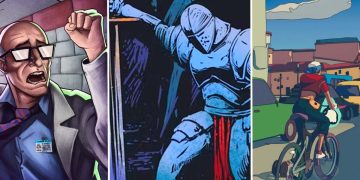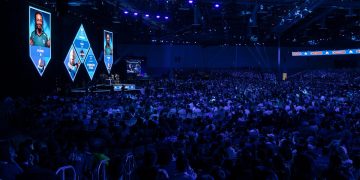The performance capture expert known for his work on popular titles like Resident Evil Village and The Witcher 3’s downloadable content recently shared insights about the gaming industry’s turbulent landscape. In a candid conversation, he acknowledged that with the barrage of layoffs and budget slashes, guarantees are few and far between. Despite the industry’s rocky terrain, he holds a firm belief that AI won’t be replacing actors any time soon.
Motion capture is the backbone of immersive experiences in games like Resident Evil Village and The Witcher 3, making the actors’ roles pivotal. However, with the industry’s current upheaval, actors are grappling with producers to secure their positions for the future.
It’s a tough spell for the video game industry nowadays. Layoffs have been a recurring theme, echoing through major corporations like Blizzard over the years. But there’s a fresh challenge in town—AI technology. This innovation threatens to edge out voice actors by mimicking renowned voices or crafting new ones from scratch. These looming issues have sparked strikes among actors who demand to control how their voices and likenesses are used. An influential figure in the gaming world has recently weighed in on this pressing debate.
Steve Kniebihly, the performance capture director behind striking successes like The Witcher 3’s DLCs and Resident Evil Village, discussed prevailing industry dynamics. Talking to Entertainment Weekly, he emphasized the precariousness faced by even the big players in the game development arena. “Layoffs, budget reductions, and unpredictability highlight that nothing is assured—not even for the top studios,” he remarked. As 2025 unfolds, multiple studios have already initiated staff reductions, a trend that’s been ominously familiar for years.
Despite the ongoing SAG-AFTRA actors’ strike, Kniebihly maintains that AI won’t supersede human voice actors in the foreseeable future. He argues that the nuanced chemistry between directors and actors is something AI simply can’t mirror. This mutual trust allows both parties to push their boundaries, an interaction AI doesn’t yet understand.
While AI technology is rapidly becoming a staple within gaming, Kniebihly’s viewpoint sheds positivity. Yet, actors struggle to find common ground. Lead negotiator Duncan Crabtree-Ireland pointed out that video game producers are insisting on using previous voice work for AI learning and even recycling voices beyond contractual obligations. These proposals stand rejected, so the SAG-AFTRA strike drags on. When a resolution will come is anyone’s guess, but it seems distant at this point.











![[Free Games Giveaway Results] Bartender Hustle (PlayStation) Winners Announced [Free Games Giveaway Results] Bartender Hustle (PlayStation) Winners Announced](https://www.nogameover.net/wp-content/uploads/2025/07/Free-Games-Giveaway-Results-Bartender-Hustle-PlayStation-Winners-Announced-360x180.jpg)
































